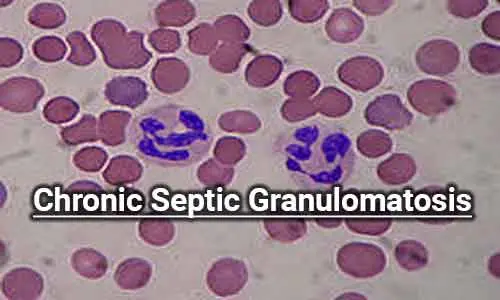- Home
- Medical news & Guidelines
- Anesthesiology
- Cardiology and CTVS
- Critical Care
- Dentistry
- Dermatology
- Diabetes and Endocrinology
- ENT
- Gastroenterology
- Medicine
- Nephrology
- Neurology
- Obstretics-Gynaecology
- Oncology
- Ophthalmology
- Orthopaedics
- Pediatrics-Neonatology
- Psychiatry
- Pulmonology
- Radiology
- Surgery
- Urology
- Laboratory Medicine
- Diet
- Nursing
- Paramedical
- Physiotherapy
- Health news
- Fact Check
- Bone Health Fact Check
- Brain Health Fact Check
- Cancer Related Fact Check
- Child Care Fact Check
- Dental and oral health fact check
- Diabetes and metabolic health fact check
- Diet and Nutrition Fact Check
- Eye and ENT Care Fact Check
- Fitness fact check
- Gut health fact check
- Heart health fact check
- Kidney health fact check
- Medical education fact check
- Men's health fact check
- Respiratory fact check
- Skin and hair care fact check
- Vaccine and Immunization fact check
- Women's health fact check
- AYUSH
- State News
- Andaman and Nicobar Islands
- Andhra Pradesh
- Arunachal Pradesh
- Assam
- Bihar
- Chandigarh
- Chattisgarh
- Dadra and Nagar Haveli
- Daman and Diu
- Delhi
- Goa
- Gujarat
- Haryana
- Himachal Pradesh
- Jammu & Kashmir
- Jharkhand
- Karnataka
- Kerala
- Ladakh
- Lakshadweep
- Madhya Pradesh
- Maharashtra
- Manipur
- Meghalaya
- Mizoram
- Nagaland
- Odisha
- Puducherry
- Punjab
- Rajasthan
- Sikkim
- Tamil Nadu
- Telangana
- Tripura
- Uttar Pradesh
- Uttrakhand
- West Bengal
- Medical Education
- Industry
Gene therapy found successful in chronic septic granulomatosis

France: Chronic Septic Granulomatosis is a rare genetic disease due to a mutation on the X chromosome. Boys affected by this disease have a deficient immune system that predisposes them to serious infections.
Researchers have found in a clinical trial that gene therapy is effective in patients with X-linked Chronic Septic Granulomatosis (X-CGD), a rare and severe immune The results have been published in the journal Nature Medicine.
Six of nine patients are free of treatment for complications generated by the disease. Genethon, which contributed to the research that led to these trials and sponsored initial clinical studies, is pleased with these results.
The patients of septic granulomatosis suffer from repeated infections, sometimes deep abscesses, atypical pneumonia but also chronic inflammation including gum or digestive tract. Each infectious episode reduces the quality of life and life expectancy of patients. Until now, only bone marrow transplants could prolong the life of patients.
The gene therapy approach consists in restoring the activity of the defective NAPDH oxidase in the patient's phagocytic cells (neutrophilic polynuclear cells, monocytes/macrophages) by gene transfer using a lentiviral vector. This lentiviral vector - G1XCGD - was developed at Genethon by Dr. Anne Galy (Inserm/UMR951/Généthon, UEVE, Université Paris Saclay), in collaboration with Dr. Adrian Thrasher of London and Prof. Manuel Grez of Frankfurt. The clinical batches were produced by YposKesi, an industrial production platform for gene therapy medicinal products created by AFM-Telethon and BPIfrance. Genethon is the promoter of the first European trial, launched in 2013, which is still in progress, the first results of which were reported in Nature Medicine.
Nine patients (4 in Europe and 5 in the United States), aged 2 to 27 years, were treated in clinical trials conducted in the UK and the United States. Seven of them, followed for 12 to 36 months after treatment, did not contract any infection. Two patients died during the trial as a result of complications acquired prior to gene therapy treatment.
"We are very proud of these clinical results, which once again demonstrate the unique capacity of our laboratory to develop therapeutic projects, from concept development to clinical trials by integrating manufacturing. These results are also the result of a rich collaboration with the best British and American clinical experts," said Frédéric Revah, Chief Executive Officer of Genethon.
"This is the first time that a sustainable treatment has been obtained by gene therapy in this disease, confirming the advantages of the lentiviral technology that has been used to treat hematopoietic stem cells," says Anne Galy, Director of the Blood and Immune System Diseases Program at Genethon.
This international effort has also been supported by the European Commission through funding by the 7th Framework Programme in Health of the European project Net4CGD of which Genethon is the coordinator.
These results led to a strategic alliance formed by Genethon with the British company Orchard, which has an exclusive license on G1XCGD allowing the clinical development of this gene therapy drug to continue.
For more details click on the link: https://doi.org/10.1038/s41591-019-0735-5
Hina Zahid Joined Medical Dialogue in 2017 with a passion to work as a Reporter. She coordinates with various national and international journals and association and covers all the stories related to Medical guidelines, Medical Journals, rare medical surgeries as well as all the updates in the medical field. Email: editorial@medicaldialogues.in. Contact no. 011-43720751
Dr Kamal Kant Kohli-MBBS, DTCD- a chest specialist with more than 30 years of practice and a flair for writing clinical articles, Dr Kamal Kant Kohli joined Medical Dialogues as a Chief Editor of Medical News. Besides writing articles, as an editor, he proofreads and verifies all the medical content published on Medical Dialogues including those coming from journals, studies,medical conferences,guidelines etc. Email: drkohli@medicaldialogues.in. Contact no. 011-43720751


